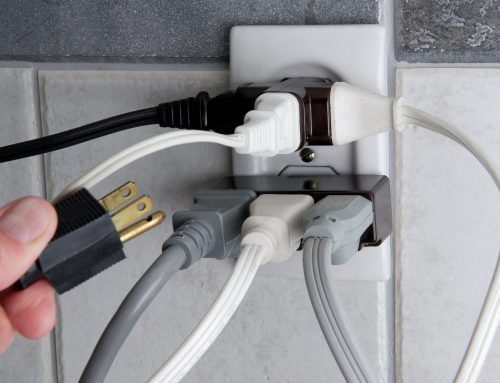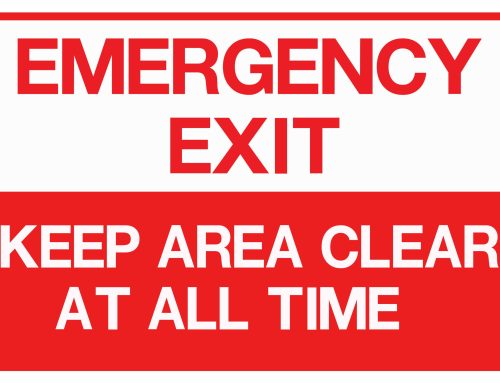Fall is only weeks away, but the thermostat definitely says summer. Whether you’re trying to sneak in some lake time in the fading dog days of summer or preparing for next boating season, fire safety on the water should always be on your mind. Boat fires are not so uncommon.
In 2017, the U.S. Coast Guard counted 4,291 accidents that involved 658 deaths, 2,629 injuries, and approximately $46 million of damage to property as a result of recreational boating accidents. Of these accidents, the primary contributing factors were machine/equipment failure and ignition of fuel/fuel vapors.
Be prepared with the proper fire suppression equipment to prevent and extinguish boat fires with these fire safety tips for boaters.
What type of fire extinguisher should you keep on a boat?
The U.S. Coast Guard has requirements for the amount and type of portable fire extinguishers to be mounted on a recreational boat with an engine. For boats under 26 feet, the requirement is at least one 2 lb. fire extinguisher. For boast between 26 and 40 feet, there should be at least two 2 lb. fire extinguishers, or one 2.5 lb. extinguisher. And for boats between 40 and 65 feet, the requirement is three 2 lb. extinguishers, one 2 lb., or one 2.5 lb. extinguisher.
The type of fire extinguisher used for boat fires is critical. Most boat fires are electrical fires, but that’s not always the case. Choosing an ABC fire extinguisher will ensure that all fires can be safely extinguished.
For the engine compartment, however, a marine fire suppression system is the safest option. This system works like the nozzle on a sprinkler head. When heat is detected, the extinguisher goes off. The problem with fires in the engine compartment is that they may get out of hand before detected or made worse by opening the compartment. These systems are typically available for purchase and can be installed without professional help, depending on the boat.
Common causes of boat fires
The most likely areas for boat fires are the galley, electrical panel, and engine compartment. Given this information, it’s not surprising that many boating fires are caused by electrical and fuel systems.
Most boat fires are caused by problems with the 12-volt DC electrical system associated with the engine or batteries, located in the engine room. All it takes is an issue with the wiring for things to go up in flames in a highly flammable area like the engine compartment of a boat. AC electrical and engine problems also account for a large portion of boating fires. AC electrical is the 120-volt plugs used to power appliances. Overloaded outlets or faulty plugs can create dangerous scenarios. Cooling system failures and the resulting overheated engine are common causes of engine problems.
Boat fire extinguisher maintenance
Do a monthly visual inspection of all portable fire extinguishers aboard your vessel. Check the gauge to ensure the extinguishers are fully charged, check that the seals are not broken, and inspect the hose for cracks or damage. Recharge or dispose of extinguishers that have been used.
Twice a year, remove the extinguishers from the mount and give a shake to loosen any dry chemical. Schedule a full maintenance check annually by a qualified fire protection technician specializing in marine fire suppression systems.
Fire code for boats
The National Fire Protection Agency (NFPA) and the International Code Council (ICC) are the main organizations that set fire codes for marinas and boatyards
The ICC outlines the proper fire protection equipment to use on and around vessels, proper fueling dispensing, general precautions
NFPA 303 provide requirements to protect lives and property from fire and electrical hazards at marinas and related facilities such as docking facilities, yacht clubs, boatyards, and boat condominiums. NFPA 302 provides fire and life safety requirements for boats that are used for pleasure and commercial purposes. This standard also establishes minimum requirements for the prevention of fire and explosion, for mitigation of carbon monoxide hazards, and for the life safety in case of fire on boats.
What should you do if your boat catches fire?
The United States Coast Guard Boating Safety Division recommends you take the following steps should your boat catch fire:
- Find the fire, determine its size
- Inform all passengers, put on life jackets, prepared to abandon ship
- Make a distress call to U.S. Coast Guard
- Restrict the fire
- Close hatches, ports, etc. to reduce the air supply to the fire
- Shut off power to electrical systems in the affected space
- Close off fuel/gas lines and ventilation
- Maneuver vessel to put the fire downwind and minimize the wind’s effect in spreading the fire
- If fire occurs at the dock, move passengers and any portable fuel tanks ashore
- Extinguishthe fire
- Determine the class of fire, appropriate equipment, extinguishing agent and method of attack
- Try to put fire out with whatever you determine is appropriate – extinguisher, fire blanket, water buckets, etc…
- Activate any built-in fire suppression systems, first ensuring that all passengers have been evacuated from the fire area
- Watch for reignition once extinguished
- Consider using water to cool the fire site once the flames are extinguished
- Cancel May Day if assistance is no longer needed.
Fire Systems, Inc.
Fire Systems, Inc. is an all-services fire protection company based in Atlanta, Georgia. We’ve been in business for over 30 years as a trusted source for fire suppression systems. We can install, inspect, and repair all components of your building’s fire protection system. We even offer fire alarm monitoring! Call us today at 770-33-7979 or visit our website for more information.






